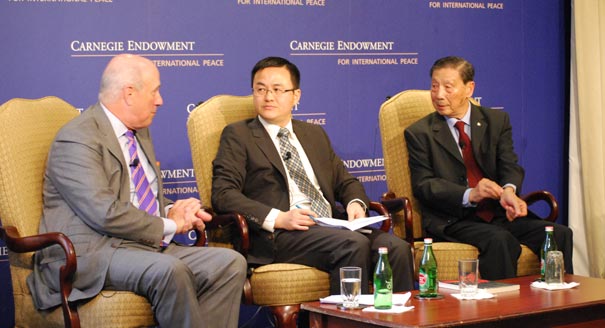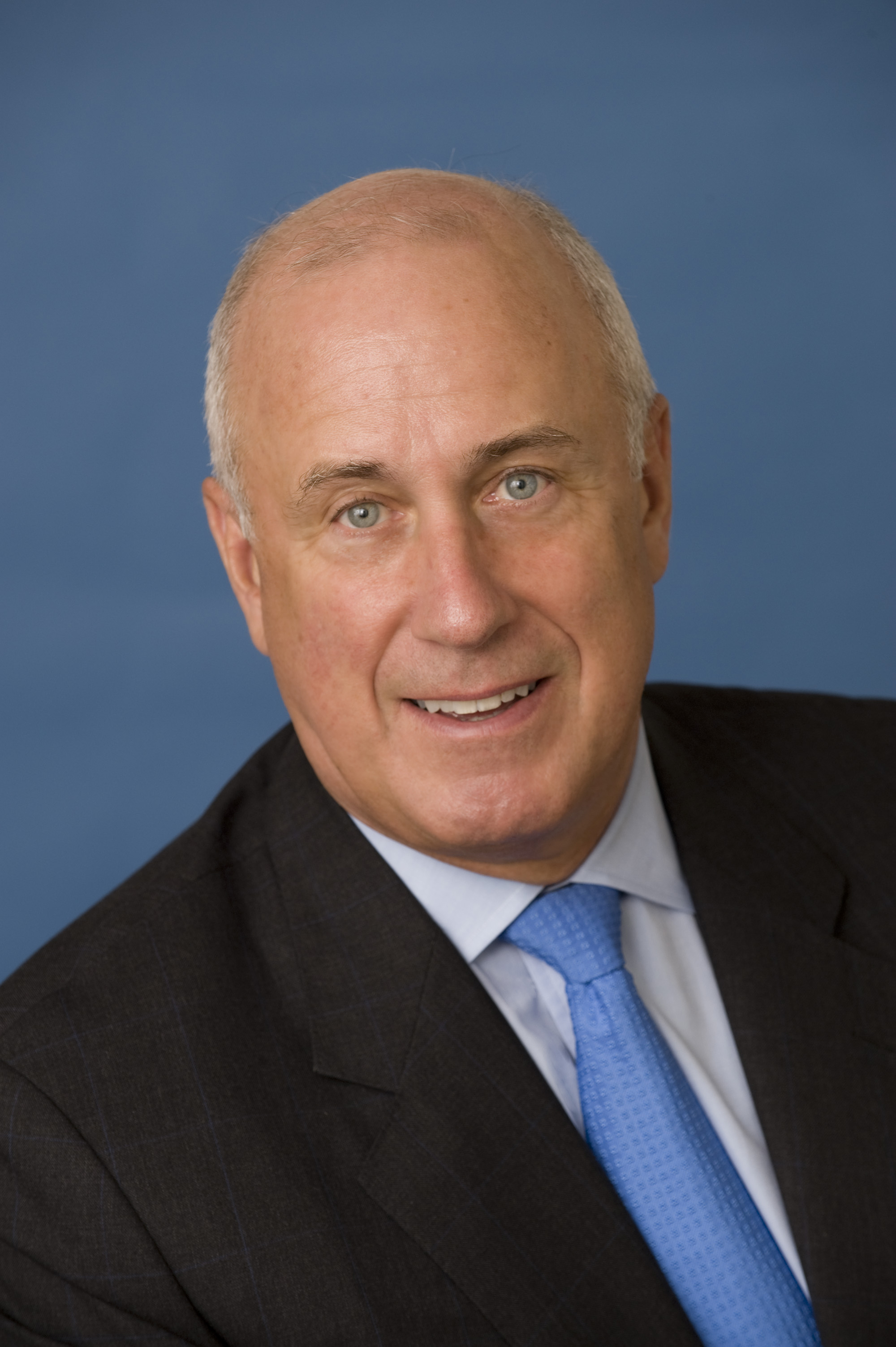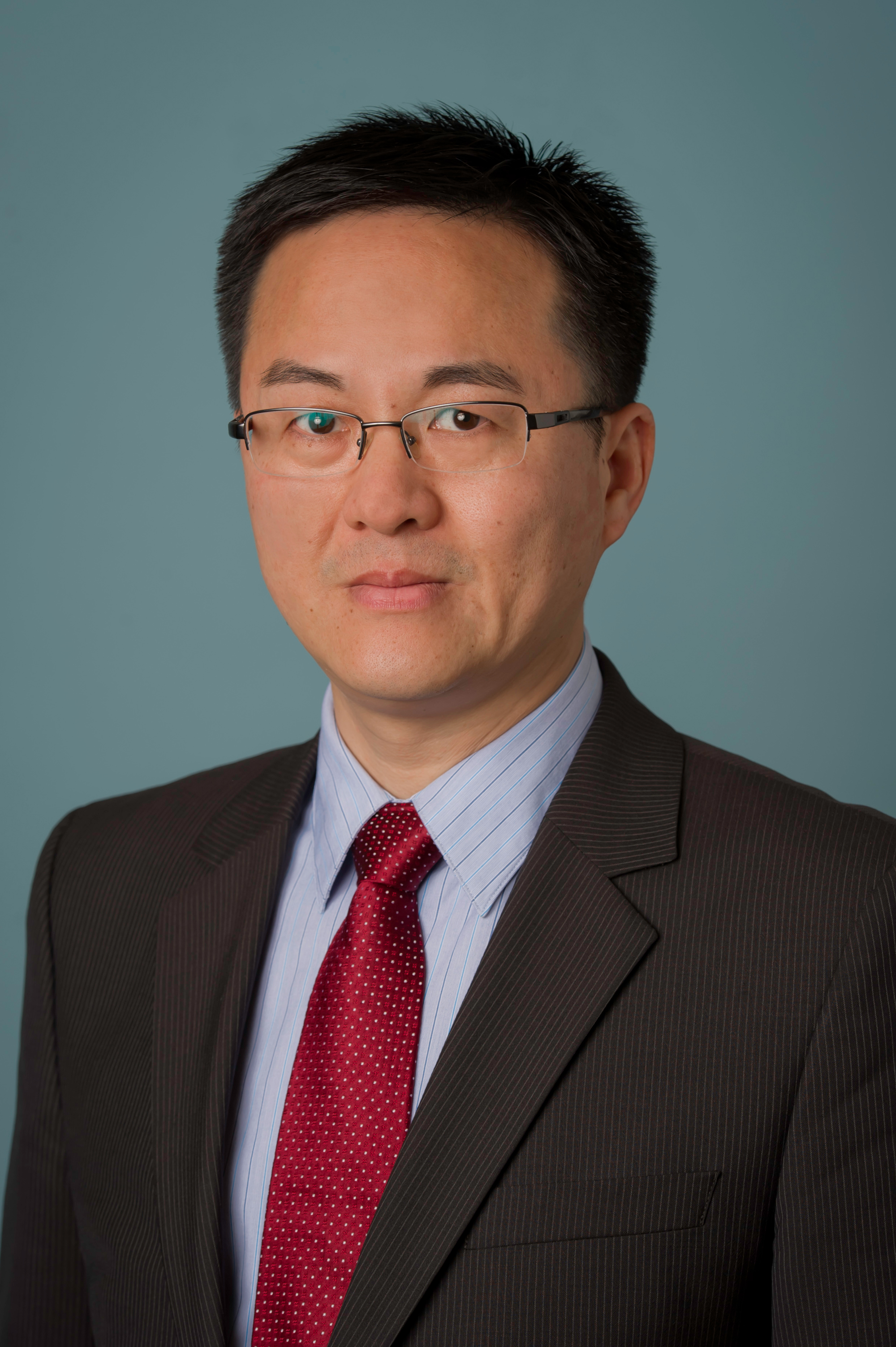{
"authors": [
"Yushi Mao",
"Douglas H. Paal",
"Kevin Jianjun Tu"
],
"type": "event",
"centerAffiliationAll": "dc",
"centers": [
"Carnegie Endowment for International Peace"
],
"collections": [],
"englishNewsletterAll": "",
"nonEnglishNewsletterAll": "",
"primaryCenter": "Carnegie Endowment for International Peace",
"programAffiliation": "SCP",
"programs": [
"Sustainability, Climate, and Geopolitics"
],
"projects": [],
"regions": [
"East Asia",
"China",
"North America",
"United States"
],
"topics": [
"Climate Change",
"Political Reform",
"Domestic Politics",
"Economy",
"Foreign Policy"
]
}
Event
Chinese Economy, Coal, and Sino-U.S. Relations
Thu, May 3rd, 2012
Washington, D.C.
IMGXYZ3731IMGZYXMao Yushi, a well-known Chinese economist and founder of the Unirule Institute for Economics, discussed China’s economic development, the consequences of the country’s increasing demand for energy and reliance on coal, and Sino-U.S. relations. Carnegie’s Douglas Paal provided commentary and Kevin Tu moderated.
China’s Economy and Politics
- Mao Zedong’s Effect: Mao said that during Mao Zedong’s rule from 1949 to 1976, China’s per capita income fell by half. 36 million people died from famine between 1959 and 1962. Yet, even today, many Chinese people are attracted to his ideology and policies, and Mao Zedong revival politics, practiced by former leader of Chongqing Bo Xilai, still provide some with illusive hope for a better future.
- Economic Progress: Mao noted that since 1978, China has made tremendous progress: the average Chinese income has grown twelvefold, thirty million people have been lifted out of poverty, and the fatality rate has fallen from 11 during the pre-reform era to 6.6 per thousand per year thereafter. Furthermore, power transitions have become increasingly institutionalized and peaceful. China can now manufacture and export sophisticated equipment, Mao continued, and the country’s aviation safety record—which can be seen as a proxy for the quality of training, equipment, and institutions—is quite good. On the other hand, reform in certain areas, including finances, has lagged in recent years, added Paal.
- International Context: Mao observed that China supplies global supermarkets with low-price goods, which has raised the living standards of people around the world. China is also importing increasingly large amounts of foreign goods and services. Compared to other developing countries, China’s infrastructure is the best, Mao asserted.
- Political Reform: Mao noted that political reform, especially regarding the protection of human rights, is still lagging. Vested interest groups are becoming increasingly powerful, leading to frequent abuses of government power. Mao asserted, however, that the current economic boom cannot be sustained without political reform. Paal added that he is “reasonably optimistic” about China’s political reform in the long run. A generation of technocrats in the Politburo will soon be replaced by a generation of leaders with more international experience, and who have been educated in the social sciences.
- Transparency: China’s political system lacks transparency. Unlike in the United States, where the president is “under a glass box, [where] everyone can see him,” the activities of top Chinese leaders are largely hidden from average citizens, said Mao. The situation with Bo Xilai is a case in point. In Mao’s view, political transparency is a process achieved through the rule of law.
Energy and Coal Consumption in China
- Climate and Safety Challenges: In 2009, emissions from Chinese coal combustion alone exceeded total U.S. carbon emissions, Mao said. China relies on coal for 68 percent of its primary energy needs. While China’s coal mining fatality rate has dropped by 90 percent since 2000, it is still ten times higher than its U.S. counterpart, he observed.
- True Cost of Coal: The price of coal in China is too low and does not include high social costs imposed on the general public and the country’s environment, Mao asserted. Including the costs of water contamination, air pollution, and mining accidents would raise the market price of coal by at least 23 percent, reduce China’s GDP by 0.1 percent, but increase social welfare by 1 million yuan. China is developing at the expense of its environment, said Mao.
- The Solution: Mao argued that the development and implementation of cleaner coal technology is the only solution to China’s coal-related emission challenge. Furthermore, as a comparison with Japan shows, the potential for energy efficiency improvements in China is huge.
- Strategic Oil Reserve: While China was a net oil exporter until 1993, imports accounted for 56.5 percent of Chinese oil consumption in 2011. However, Mao warned that the fact that China, unlike the United Sates, does not have a sufficient Strategic Oil Reserve is an increasingly serious policy concern.
- U.S.-China Collaboration on Energy Security: While China’s foreign oil dependency rate is expected to grow in the coming decades, the United States has lowered oil imports to less than half of national consumption, largely due to domestic shale oil and gas boom and much slower economic growth. Tu observed that these opposing trends in terms of foreign oil dependency are expected to create sufficient room for closer U.S.-China bilateral collaboration on energy security in the future.
Sino-U.S. Relationship
- Historic Perspective: Until 1949, China and the United States were close allies, Mao explained. However, beginning with the Korean War in 1950, Sino-U.S. relations turned hostile. During his rule, Mao Zedong maintained that the United States was China’s biggest enemy.
- Chinese Misunderstandings: Despite the fact that China has successfully moved to a capitalist economic system, communism is still China’s official ideology and continues to be an attractive theory in China’s rapidly changing society, said Mao. China perceives the United States as a potential enemy and many Chinese see evil intentions behind U.S. policies.
- U.S. Misunderstandings: Mao said U.S. government officials don’t fully understand and appreciate the political and economic progress that China has already made. China is actually “very open” and the Chinese have “ample opportunity to access outside information,” said Mao. Paal noted, however, that despite progress in the lives of ordinary Chinese, “political expression is still extremely confined” and has even regressed as far as people’s ability to organize and speak out politically.
- Necessary Steps: A serious conversation between leaders of both countries would greatly benefit Sino-U.S. relations, Mao said. Topics like North Korea and activities in the South China Sea need to be discussed at the highest level, with each side clearly stating their long-term ambitions and concerns.
Carnegie does not take institutional positions on public policy issues; the views represented herein are those of the author(s) and do not necessarily reflect the views of Carnegie, its staff, or its trustees.
Event Speakers
Yushi Mao
Paal previously served as vice chairman of JPMorgan Chase International and as unofficial U.S. representative to Taiwan as director of the American Institute in Taiwan.

